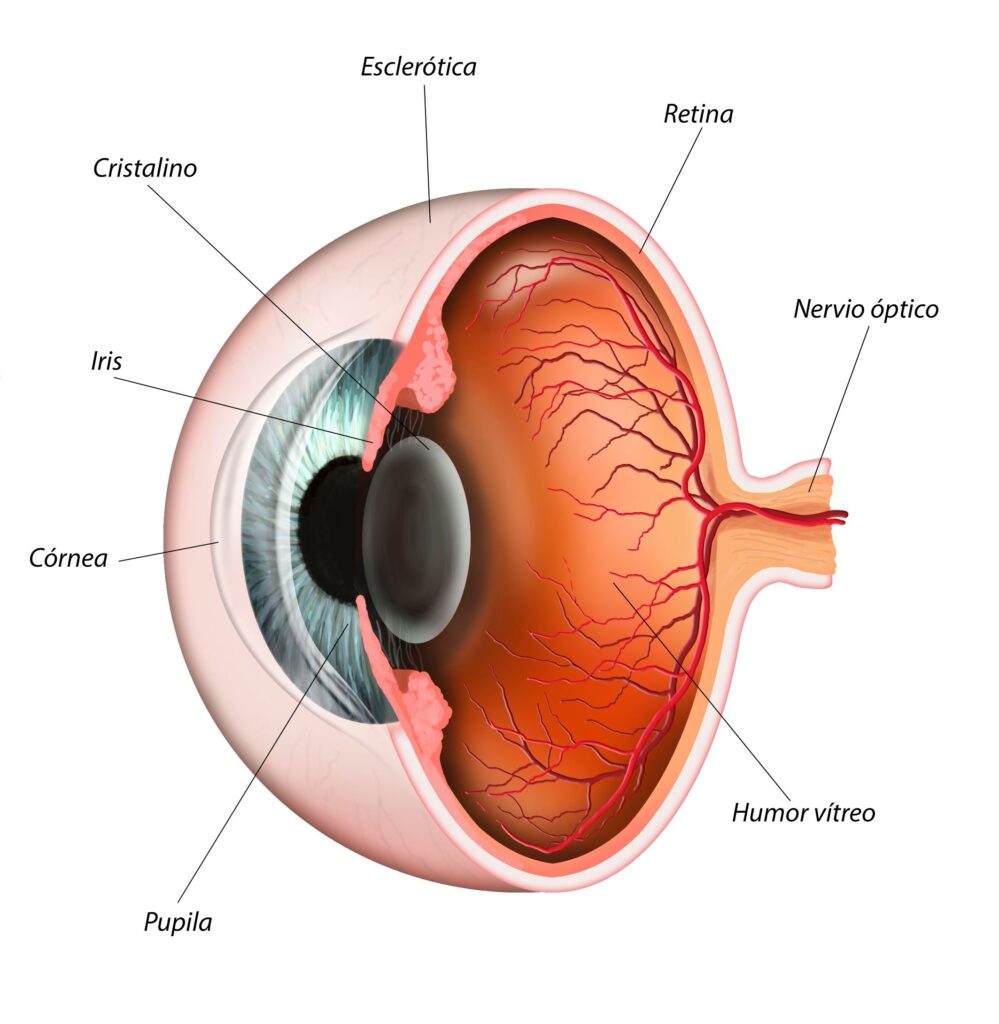This post may contain affiliate links, which means we may earn a commission if you purchase through those links at no cost to you. Full article you can read here.
Table of Contents
Introduction
If you are looking for a natural way to improve your eye health then you don’t have to look no further than lutein, a powerful nutrient that can work wonders for your eyes. From enhancing visual acuity to protecting against age-related macular degeneration, lutein has numerous benefits that you shouldn’t miss out on.
In this article, we dive deep into the eye-opening world of lutein and reveal the top 5 foods that are packed with this incredible nutrient. Whether you want to add more lutein to your diet or simply learn about its extraordinary benefits, this article has got you covered.
So, what exactly is lutein? How does it contribute to our eye health? Which foods should you start incorporating into your meals to boost your lutein intake? Join us as we answer these questions and more and prepare to be amazed by the remarkable benefits of lutein.
Get ready to see the world through a clearer, sharper lens with the power of lutein. Let’s get started!
Understanding the importance of lutein for eye health
Lutein is a natural pigment known as a carotenoid, found in various colorful fruits and vegetables. It is a powerful antioxidant that plays a significant role in maintaining healthy vision. Our bodies do not produce lutein, so it is essential to obtain it through our diet or supplements.
Research has shown that lutein can help protect the eye from harmful blue light, reduce the risk of developing age-related macular degeneration (AMD), and improve overall visual function. When consumed regularly, lutein accumulates in the retina and lens, where it acts as a shield against oxidative damage caused by free radicals.
In addition to its antioxidant properties, lutein also acts as a filter for high-energy blue light, reducing its impact on the eyes. This is especially important in today’s digital age, where we are constantly exposed to screens emitting blue light. By incorporating lutein into our diet, we can support our eye health and potentially reduce the risk of various eye conditions.

Top 5 foods rich in lutein and how they contribute to eye health
Now that we understand the importance of lutein for eye health, let’s explore the top 5 foods that are packed with this powerful nutrient:
- Leafy Green Vegetables: Spinach, kale, and Swiss chard are excellent sources of lutein. These leafy greens not only provide a high amount of lutein but also contain other beneficial compounds like zeaxanthin, which work together to support eye health. Incorporating leafy greens into your diet can help improve visual acuity and reduce the risk of AMD.
- Eggs: The yolk of eggs is a rich source of lutein. Consuming eggs regularly can significantly increase your lutein intake. Studies have shown that the lutein in eggs is highly bioavailable, meaning it is easily absorbed by the body and utilized for various functions, including eye health.
- Corn: Corn is another fantastic source of lutein. Yellow corn, in particular, contains high levels of this nutrient. Adding corn to your meals can be a delicious way to boost your lutein intake and support your eye health.
- Orange and Yellow Fruits: Fruits like oranges, mangoes, and papayas are not only delicious but also rich in lutein. The vibrant colors of these fruits indicate the presence of lutein and other carotenoids. Consuming these fruits regularly can help protect your eyes from oxidative damage and maintain healthy vision.
- Peppers: Bell peppers, especially the yellow and orange varieties, are packed with lutein. These colorful vegetables not only add a pop of flavor to your dishes but also provide a significant amount of lutein. Including peppers in your meals can be an excellent way to incorporate lutein into your diet.
By incorporating these lutein-rich foods into your meals, you can enjoy the benefits of this powerful nutrient and support your eye health.
Exploring the role of lutein in preventing age-related macular degeneration (AMD)
Age-related macular degeneration (AMD) is a condition that affects the central part of the retina, leading to a loss of central vision. It is the leading cause of visual impairment and blindness in older adults. Fortunately, lutein has been shown to play a crucial role in preventing AMD and preserving visual function.
Research has demonstrated that individuals with higher levels of lutein in their blood and retinas have a lower risk of developing AMD. Lutein acts as a protective shield, absorbing harmful blue light and neutralizing free radicals that can damage the macula, the central part of the retina responsible for sharp, detailed vision.
In addition to its protective role, lutein also helps improve visual acuity and contrast sensitivity, which are essential for clear vision. By incorporating lutein-rich foods into your diet, you can potentially reduce the risk of developing AMD and maintain healthy vision as you age.

Lutein's impact on reducing the risk of cataracts
Cataracts are another common age-related eye condition characterized by the clouding of the lens, leading to blurry vision. Lutein has been found to have a protective effect against cataracts by reducing oxidative stress and inflammation in the lens.
Studies have shown that individuals with higher lutein intake have a lower risk of developing cataracts. Lutein’s antioxidant properties help neutralize free radicals that can damage the lens and contribute to cataract formation. By incorporating lutein-rich foods into your diet, you can support lens health and potentially reduce the risk of cataracts.

How lutein supports overall eye function and visual performance
Beyond its role in preventing AMD and reducing the risk of cataracts, lutein also supports overall eye function and visual performance. Research has shown that lutein supplementation can improve visual acuity, contrast sensitivity, and glare recovery, especially in individuals with low initial levels of lutein.
Additionally, lutein has been found to enhance visual processing speed and cognitive function related to vision. This means that consuming lutein-rich foods or taking lutein supplements may not only benefit your eye health but also improve your overall visual performance.
Incorporating lutein-rich foods into your diet: practical tips and recipes
Now that you’re aware of the incredible benefits of lutein, you might be wondering how to incorporate lutein-rich foods into your diet. Here are some practical tips and delicious recipes to help you get started:
- Add leafy greens to your salads: Start by adding a generous handful of spinach or kale to your salads. You can also sauté them with garlic and olive oil as a nutritious side dish.
- Make lutein-packed omelets: Whip up a lutein-rich omelet by including eggs, spinach, and bell peppers. This breakfast option is not only delicious but also a great way to start your day with a boost of lutein.
- Blend lutein-rich smoothies: Create a refreshing smoothie by combining fruits like mangoes, oranges, and papayas. Add a handful of spinach or kale for an extra dose of lutein. You can also include a lutein supplement for additional support.
- Roast lutein-rich vegetables: Roasting vegetables like bell peppers and corn brings out their flavors and enhances their lutein content. Toss them with olive oil, salt, and pepper, then roast them in the oven until tender and slightly charred.
By incorporating these tips and recipes into your meal planning, you can easily increase your lutein intake and support your eye health.
Supplementing with lutein: what you need to know
While incorporating lutein-rich foods into your diet is the best way to obtain this powerful nutrient, some individuals may benefit from lutein supplements. Lutein supplements can provide a concentrated dose of lutein, especially for those who have difficulty meeting their daily lutein requirements through diet alone.
When choosing a lutein supplement, look for one that contains a high-quality, naturally sourced lutein derived from marigold flowers. It is also important to consider the dosage and consult with your healthcare provider to determine the appropriate amount for your specific needs.
Remember, supplements should complement a healthy diet and lifestyle, not replace it. It’s always best to obtain nutrients from whole foods whenever possible.
Lutein and other nutrients that work synergistically for eye health
While lutein is a powerful nutrient, it also works synergistically with other compounds to support eye health. Two other carotenoids, zeaxanthin and meso-zeaxanthin have been found to complement lutein’s effects and further enhance its benefits.
Zeaxanthin, like lutein, is found in leafy greens, eggs, and orange and yellow fruits. Meso-zeaxanthin is not commonly found in foods but is produced in the retina from lutein and zeaxanthin. Together, these three carotenoids form the macular pigment, which helps protect the macula and maintain healthy vision.
Omega-3 fatty acids, found in fatty fish like salmon and sardines, also play a crucial role in supporting eye health. They have been shown to work synergistically with lutein and zeaxanthin, enhancing their absorption and effectiveness in the retina.
By incorporating a variety of lutein-rich foods, zeaxanthin sources, and omega-3 fatty acids into your diet, you can maximize the synergistic benefits for your eye health.

Conclusion: the power of lutein in maintaining healthy vision
In conclusion, lutein is a remarkable nutrient that offers a myriad of benefits for your eye health. From protecting against age-related macular degeneration and reducing the risk of cataracts to supporting overall eye function and visual performance, lutein is truly an eye-opening nutrient.
By incorporating lutein-rich foods into your diet, such as leafy green vegetables, eggs, corn, orange and yellow fruits, and peppers, you can boost your lutein intake and support your eye health naturally. Whether you choose to consume these foods in their raw form, cooked, or in delicious recipes, the benefits of lutein are within your reach.
Remember, a healthy lifestyle encompasses more than just what we eat. Regular eye exams, maintaining a balanced diet, protecting your eyes from excessive blue light, and practicing good eye hygiene are all essential for maintaining healthy vision.
So, why wait? Start nourishing your eyes with the power of lutein today and see the world through a clearer, sharper lens tomorrow. Your eyes will thank you for it!
Disclaimer: Please note that the information provided in this article is not a substitute for professional medical advice. Consult a healthcare professional before making any purchasing decisions or starting a new supplement regimen. Full article you can read here.






